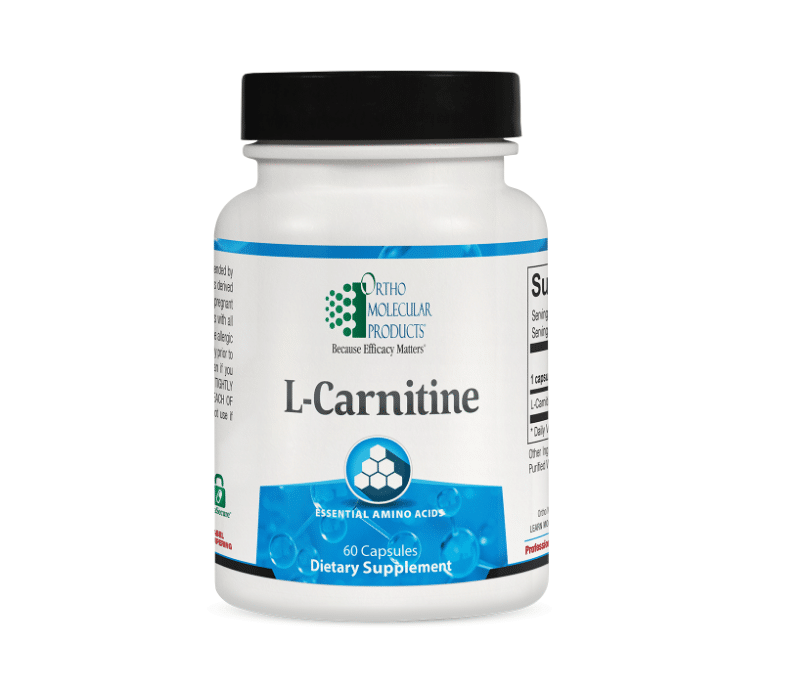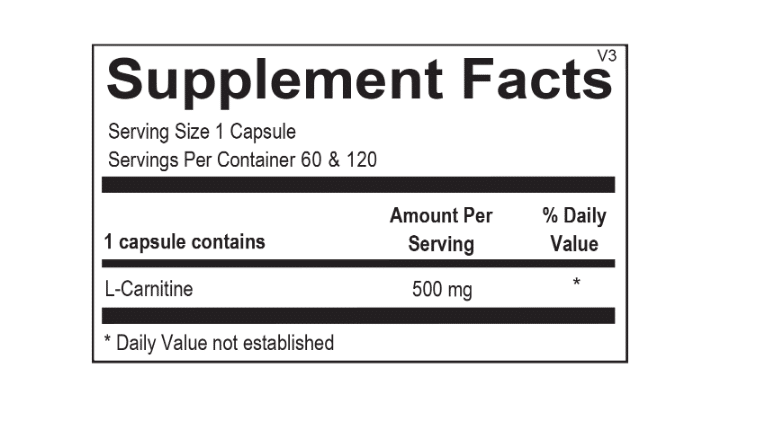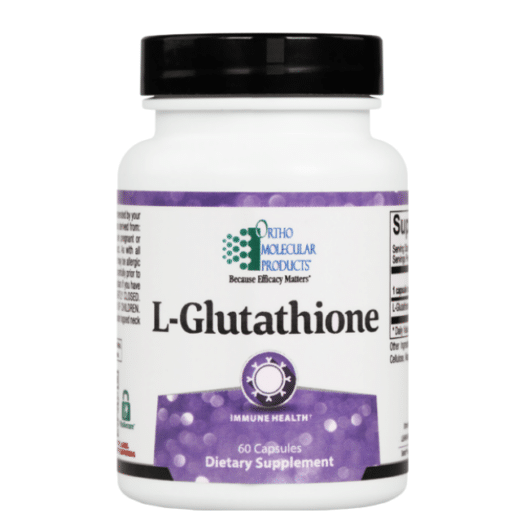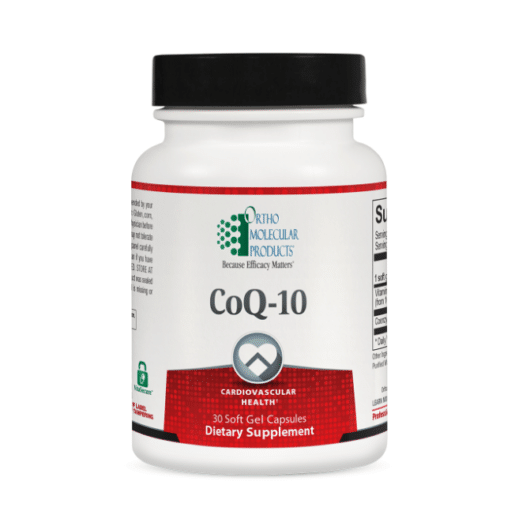Description
Clinical Applications
- Improves Cellular Energy Production
- Stimulates Fat Utilization and Boosts Metabolism
- Promotes Cardiovascular Health
- Supports Post-Training Muscle Recovery
Produced in the body from L-lysine and L-methionine, the synthesis of L-carnitine requires optimal amounts of other key nutrients including niacin, pyridoxine, vitamin C and iron for synthesis. Following production, L-carnitine is transported to the cardiac and skeletal muscle, where 98% of total body L-carnitine is stored. The heart and skeletal muscles, as well as many other tissues, depend on fatty acid oxidation as a source of energy. L-carnitine is an essential nutrient required for the transportation of long-chain fatty acids into the mitochondrial matrix. Within the mitochondria of each cell, a metabolic process called beta-oxidation occurs, resulting in the production of energy in the form of adenosine triphosphate (ATP). L-carnitine also aids in the transport of short-chain and medium-chain fatty acids out of the mitochondria and aids in the liberation of coenzyme A, an important component of ATP.
L-carnitine is an amino acid essential for the transport of fatty acids into the cell mitochondria. Research has shown that L-carnitine stimulates the use of fat for fuel and boosts metabolism, which plays a key role in weight management. L-carnitine has also been found to support cardiovascular health and to increase aerobic capacity during exercise. The L-Carnitine formulation provides 500 mg of L-carnitine per capsule, now delivered using quick-release, fast-absorbing Licaps® Technology. The Licaps® capsule shell matrix seals and protects the nutrient inside with a nitrogen bubble, ensuring maximum freshness. The thin shell dissolves rapidly, releasing a liquid formulation that speeds nutrient absorption. These cutting-edge advancements in capsule filling, sealing and nutrient delivery ensure therapeutic potency and efficacy.
Suggested Use:
1 capsule three times per day or as recommended by your health care professional
Depletion
Some individuals require supplemental L-carnitine to maintain normal metabolism. In addition, L-carnitine requirements vary under certain conditions. For example, L-carnitine is removed from the circulation during hemodialysis. Impaired L-carnitine synthesis by the kidneys may also contribute to the potential for carnitine deficiency in patients with end-stage renal disease undergoing hemodialysis. The U.S. Food and Drug Administration has approved the use of L-carnitine in hemodialysis patients for the prevention and treatment of L-carnitine deficiency. Additionally, certain medications including anticonvulsants and nucleoside analogues used in the treatment of HIV infection, may produce a secondary L-carnitine deficiency. Pivalic acid-containing antibiotics may also produce a secondary L-carnitine deficiency, as may certain chemotherapy agents.
Muscle Recovery
A double-blind, placebo, crossover study found that 2 g of L-carnitine had positive effects and significantly attenuated markers of purine metabolism, free radical formation, muscle tissue disruption, and muscle soreness after physical exertion. A randomized, placebo-controlled study suggested L-carnitine can improve exercise tolerance and muscle strength while decreasing lactic production.
Energy Production and Metabolism
L-carnitine is known to play a central role in metabolism, specifically in the production of energy from fatty acids. Dietary L-carnitine supplementation has been shown to have a metabolic effect, facilitating fatty acid oxidation in overweight animals undergoing rapid weight loss.
Cardiovascular Health
Administration of L-carnitine has been shown to support the health of myocardial tissues in a number of experimental model systems and to improve cardiovascular wellness.






Reviews
There are no reviews yet.